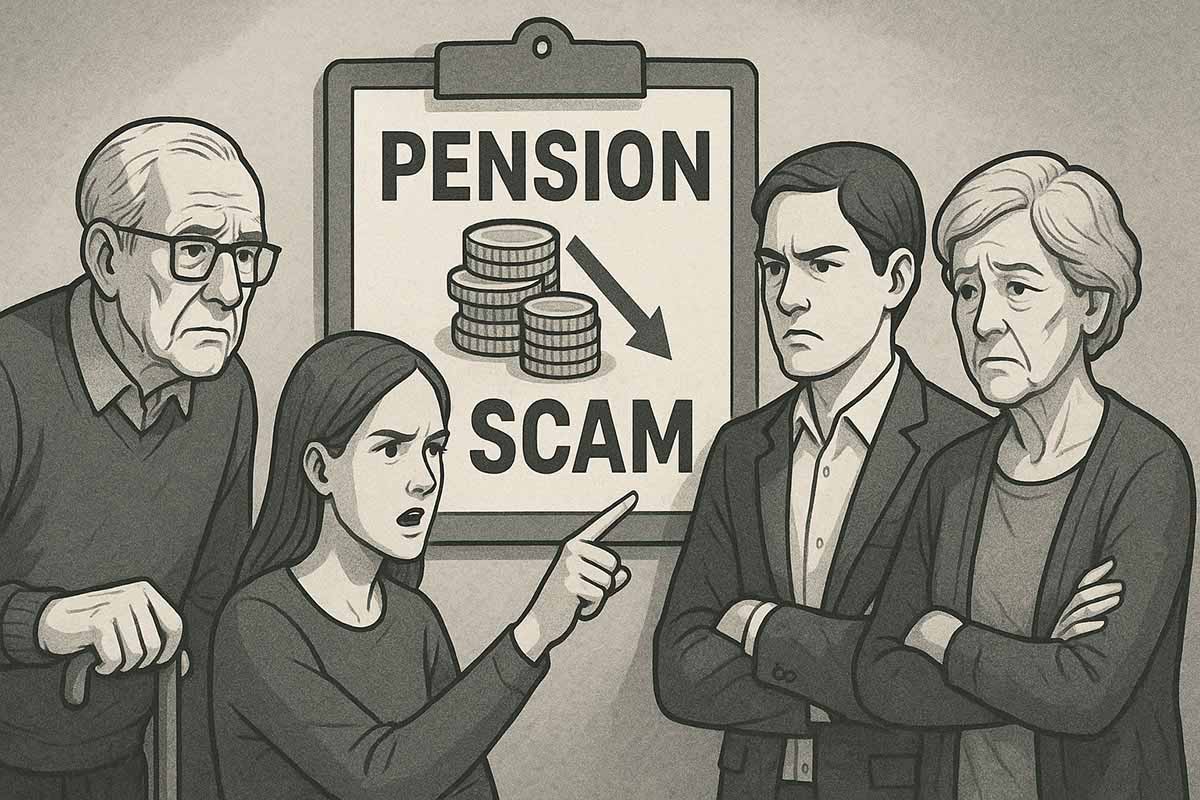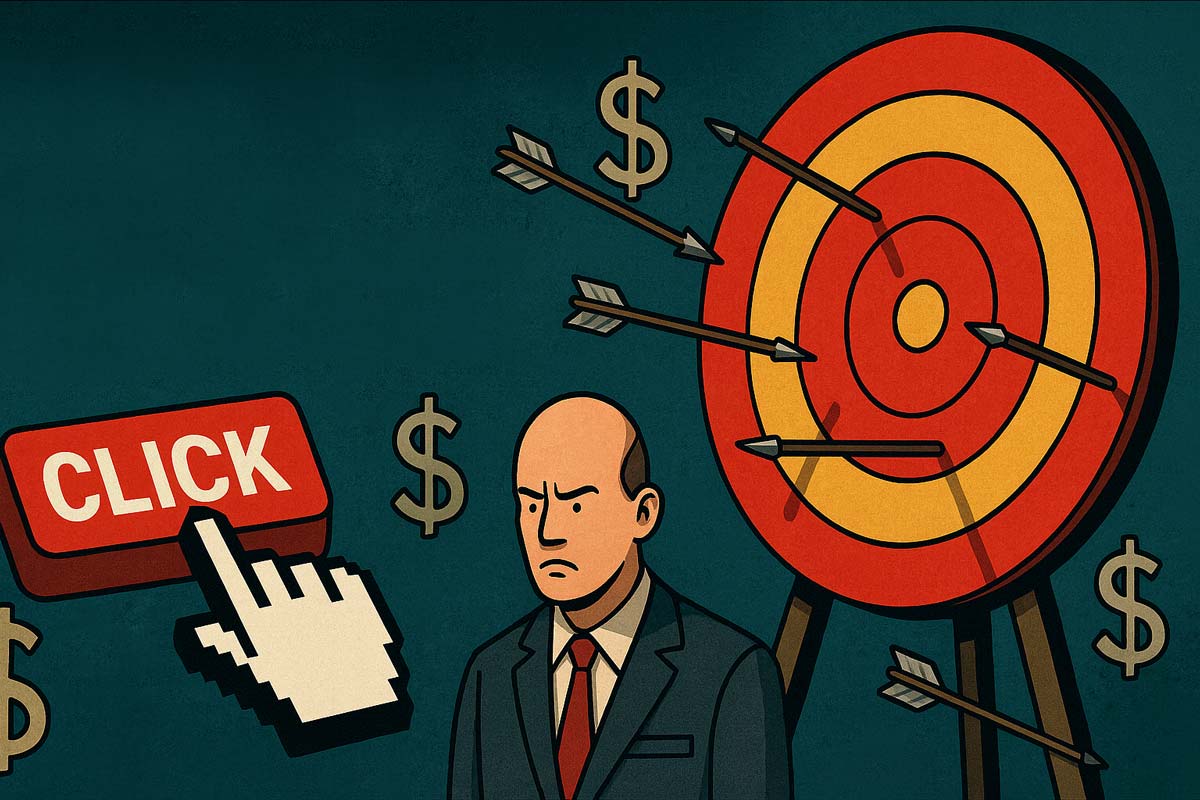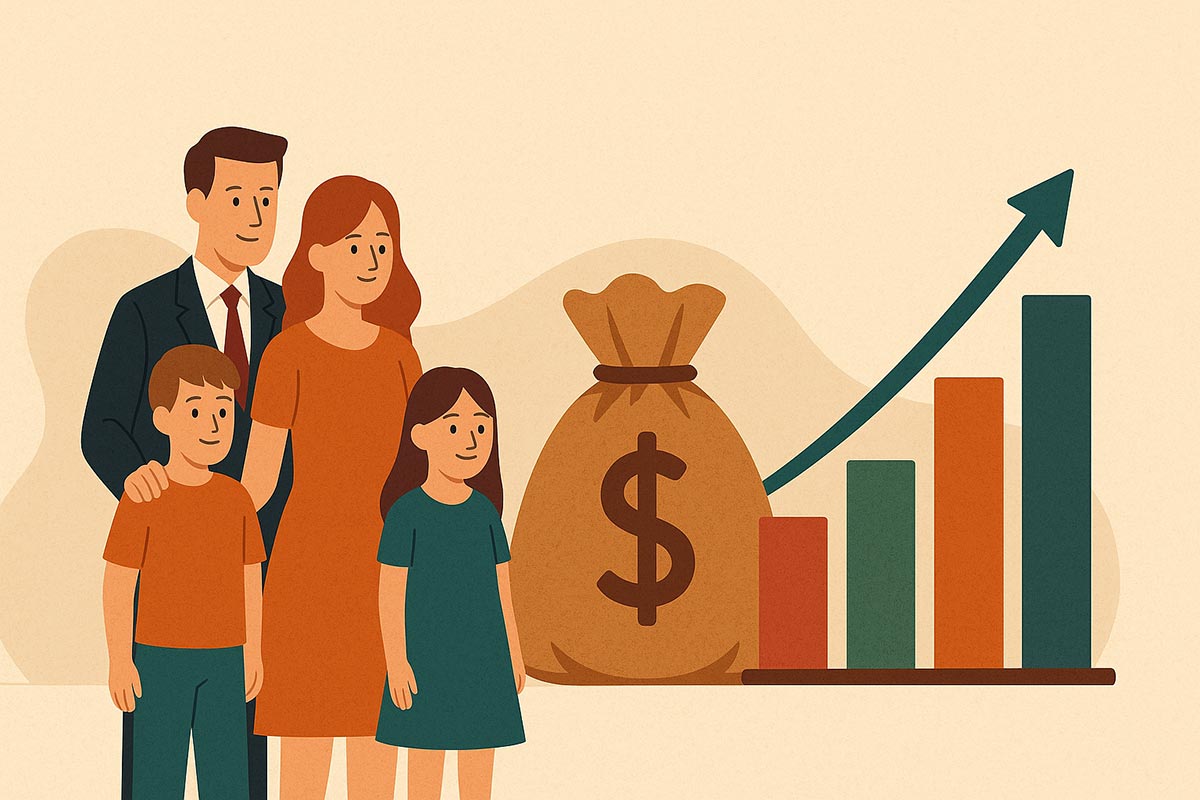Imagine if someone came up to you one day and proposed the following: for your entire working life, every single month, you would voluntarily hand over a portion of your income to a closed fund, one you don’t control, can’t access, can’t influence in any way and in exchange for a vague promise that, some thirty years down the line, when you are old, tired, and most likely ill, you’ll start receiving crumbs. Not the full amount. Not in a currency with stable purchasing power. Not adjusted fairly for inflation. And certainly not in the form of a capital sum you could manage yourself, but rather as a monthly handout, just enough to avoid dying too quickly.
Would you agree to that?
I assume not. No rational person in their right mind would sign up for such conditions. And yet, somehow, millions did. Honest, hard-working, law-abiding people without signing anything, without asking too many questions, simply because “that’s how it’s done.” Because “everyone does it.” Because since childhood, fed on television propaganda and lullabies of “growth and prosperity,” they absorbed the idea that a pension is a safety net, a guarantee, a well-earned reward that requires no struggle and will surely arrive. Because their father received one. Because their mother did. Because “the state will take care of you.”
No one told these people they were part of the most elaborate and sophisticated wealth extraction scheme in modern history. Not underground. Not illegal. Not a shady operation. But official. Legal. Embedded in tax codes and collective unconsciousness. A system that was never designed to produce winners. Because the pension system is not a contract between the citizen and the state but it’s a one-sided surrender of control over your own future in exchange for a soothing and fundamentally dishonest illusion of security.
It was conceived as a politically convenient mechanism of redistribution, first under the guise of social justice, then fiscal policy, and today psychological anesthesia. It is defended not because it works, but because the alternative is too terrifying for those unwilling to take responsibility for themselves.
The average person who pays into a pension fund rarely asks where the money goes. They don’t know who manages their future, what returns the fund yields, how interest is used, what the state is truly obligated to deliver, or what the terms of withdrawal are. They only know they pay. Regularly. For years. Automatically. Often without even noticing the loss because the pain is delayed. And they believe it’s the right thing to do.
That belief is their fundamental mistake. Because the system they’ve entrusted is no longer capable of fulfilling even the modest promises it once proclaimed. The average pension today in Russia, Kazakhstan, Belarus, or Uzbekistan is not security, nor dignified aging but it’s institutionalized survival. A symbolic monthly allowance barely enough for utilities and blood pressure meds. It’s not a reward. Not a return on investment. It’s a decades-long deferral of disappointment, in which a person who’s worked a lifetime is left to quietly accept scraps because no one offered an alternative.
But there is an alternative. And it doesn’t start with the question, “Why is my pension so low?” but rather, “Why did I ever assume anyone owed me one?”
Because the pension system, like any redistributive tool, is not a promise but it’s a mechanism. It doesn’t serve you. It serves itself. It wasn’t built to make you happy, it was built to keep you docile.
Too many have chosen to pay for the illusion. But the illusion isn’t the pension, it’s the voluntary surrender of control over your own life. And the sooner one understands this, the lower the odds they’ll become a burden to their children, a slave to pharmacies, or a budget-dependent elder whose only dream is that they can still afford buckwheat and joint cream.
Who owes you anything?
No one ever promised you a good life. You assumed it. Or rather, you filled in the blanks yourself. Tired from years of labor, disillusionment, and uncertainty, you painted a picture in your head of retirement as a time of respect and peace. A terrace. A book. Grandchildren nearby. Finances in order. Health in check.
You dreamed that by fifty, maybe sixty, you’d finally rest, live for yourself, open a little café, move to the countryside, start painting, writing, taking long walks, getting proper treatment, and choosing food by taste, not price.
No one promised you that. No pension fund ever attached a glossy brochure with those images to your contribution forms. That was your fantasy.
And the reality is that in most post-Soviet countries, pensions are not a plan but they are a residual mechanism not designed for dignified living, but solely to prevent premature death from hunger. It exists so that you don’t spark an unrest, so you don’t rock the boat, so the masses stay in the comforting illusion that “something is there.” So that, despite your inner rage, you don’t march out into the streets, don’t go on strike, don’t stand in court, don’t write a book titled “They Openly Robbed Me.”
The state never counted on you living long. It never planned for you to get seriously ill, never expected the healthcare system to collapse, prices to increase tenfold, and you to end up in a cold, one-room with a pension equivalent to 150 dollars, too proud to ask your children for help so as not to feel like a burden. What it calculated on was different – on a short life, on obedience, on fear, on your silence.
But even if you begin asking questions, nobody will answer. The pension system is a bureaucratic black box where nobody bears personal responsibility, where every official is just a cog in the machine, and the mechanism exists solely on the premise “we’ve always done it this way.” And even if you somehow break into the very core of this mechanism, you won’t find a villain. You’ll find only indifference, fatigue, rust. It’s not a conspiracy. It’s worse, a systemic, deeply rooted, totally institutionalized negligence.
All this rests on a fundamental lie repeated everywhere from screens, stages, schools, and within families, that the state cares for its citizens. It doesn’t. It cares about itself. About staying afloat. About preventing tax revenues from falling. About keeping international ratings intact. About maintaining stability, not yours, but theirs. And you’re a statistics, background noise, a variable in an equation that can be replaced.
Want to know the most absurd thing? Most people still believe that if they pay in, they’re owed something. But the money you paid was spent long ago. It went to those older than you when you were young. Your future payout will depend not on what you contributed, but on what’s left in the coffers when you become useless. This is not a funded system. This is a financial pyramid, wrapped in legal formality, where new contributors pay the old, and once there aren’t enough newcomers, then come reforms, freezes, hikes in retirement age, and cancellation of benefits.
And when you’re too worn to work but still alive, when you’re too tired to fight but still hoping, that’s when clarity hits. But it’s too late for many, because there’s barely any time left to build something of your own. You’ve already given your best years, your best money, your best effort, counting on a return. And there is none.
What to do?
Start yourself. Immediately. Not with waiting for a pension, but with realizing your responsibility. Because that’s the only reform that actually works. No fund, no state law, no demographic tweak will save you if you keep believing someone owes you something. No one does. And surprisingly, that’s good news because as soon as you grasp that, you stop being a victim and start becoming the author. The author of your life. Your retirement. Your system.
There is an exit. But it comes with a price. And it starts with ‘myself.’ You must accept that retirement is not an age but it is a financial state. You can be young and poor and feel ancient, or you can be sixty with capital, rental income, and travel plans mapped for a year ahead, and feel more alive than most thirty-year-olds. Money defines what happens to you after fifty. Not dreams. Not family ties. Not loyalty to the company where you labored for decades. Only capital.
Now the question: how do you build this capital? Especially if you’re forty-five and have barely a month’s living expenses saved. The answer is simple but precise: start now with what you have. Yes, it’s late. But tomorrow will be even later. And the state remains self-absorbed.
Calculate. Don’t dream. Don’t hope. Don’t believe. Calculate. How much money you’ll need to live 20–25 years after leaving work without becoming a beggar. Calculate your current expenses, project inflation, account for rising healthcare, food, housing costs. Example: if you need $2,000 a month now, in 15 years that will be $3,500, if not more. Without including help to children or grandchildren.
Save and invest. Don’t just stash. Investing is not a luxury but it’s a lifeline. Money under your mattress ages faster than you. Inflation eats it alive. Even a steady 6–8% return in a stable currency with reinvestment makes a difference. Example: $10,000 invested at 8% annual return becomes almost $32,000 in 15 years. Add $10,000 every five years, in total you get over $90,000. Now scale up. Or cut expenses. But the point is to start.
Diversify. Forget fairy tales about “one reliable investment.” Old age is long. Inflation, devaluations, wars, crises, black swans – all of it will come. You need a basket: part in real estate, part in debt instruments, part in liquid assets, part in growth-oriented opportunities. The goal is not to chase profits, but to build resilience.
Inheritance. State pensions die with you. Your capital doesn’t. It can become not only the foundation of your retirement, but the launchpad for your children. That’s real care. Not tears at your funeral, but a structured portfolio that prevents them from falling into the same pit you once climbed out of.
Control. No one but you is responsible for how your old age will unfold. No pension fund will call to remind you it’s time to adjust your strategy. You must become the manager of your future life. Read. Learn. Ask questions. Get advice. Cross-check. Laziness is a tax too. It gets collected later in the form of humiliation and shortage.
The most common question I hear from people over fifty is, “Isn’t it too late?” No. Too late is when you’re lying down and no longer getting up. Everything else is within range. Yes, it’s harder. Yes, you have less time. But the sooner you take control, the less fear there’ll be.
There is a way out. It’s not free, not easy, and not guaranteed. But it’s real. And it’s yours. The only condition: stop waiting. Start acting. No resentment, no illusions. Like an adult who finally understands that his old age will be worth exactly what he put into it.
The Foundation of Retirement Freedom
Sooner or later, every human being asks: what comes next? Not after death – religions have covered that, but after the office, after the business, after the system where you were needed, where your calendar was booked and your inbox flooded with meetings. What happens when you’re no longer part of the stream and find yourself cast aside, not by choice, but by age?
In the post-Soviet reality, the answer is simple and ruthless: nothing. You vanish from sight. And the pension, if it exists, will be so insultingly low that you’ll feel ashamed of the years you once naively believed in “state care.” You’ll save on medications. Count how many times you can leave the house to avoid bus fares. Turn milk cartons upside down to squeeze out every drop. This isn’t fear-mongering. It’s dry facts and statistics. It’s the everyday reality of hundreds of thousands who once labored, paid taxes, voted, and hoped. They can’t be saved anymore. But you’re still here.
The system built on the illusion of mutual care is cracking. Demographics are breaking the balance. The funds are in deficit. There are fewer young people and more elderly. And with every passing year, the math of your chances for a decent retirement deteriorates.
Grasping this is your point of growth. As long as you’re alive and acting, you are not a burden but you are a project. A financial, investment, strategic project. And your task is to build it with a cold head and a clear plan.
Old age doesn’t wait. It arrives with aches and low energy. And if you haven’t laid the foundation ahead of time, no children, no friends, no state will help you because they have problems of their own.
Investing is not a luxury. It’s a lifeline. Even with small sums. Even without experience. What matters is that you start. Regularly. Consciously. Have a plan. Review it. Keep learning. Investing isn’t about money but it’s about managing life. Freedom is in control, not in handouts. Everything they give you, they can take away. Benefits, subsidies, supplements is just a dust. Real freedom is when you have the choice: where to live, what to do, who to support. That choice is expensive but you can buy it with discipline, knowledge, and action.
Children are not your pension fund. Their love isn’t a tool. Their help isn’t a duty. If you want them to live their lives without dragging you along, without having to choose between “Mom or the mortgage,” then you must build your support structure yourself. Don’t wait. Don’t ask. Secure yourself in advance.
And then, when you’re sixty-five, and you open your statement and see that you have capital, income, a plan, and a strategy, you won’t be afraid. You’ll smile. Because you didn’t become just another cog lost in the archives. You became an example. A support. A free person in a system built for dependence.
Final Thought
The state doesn’t owe you a pension. It never deceived you, it simply failed. Because a pension is not a right, but a product. And you are its only manager. Accept it not as a tragedy, but as a challenge. In fact, as a final exam in maturity. Can you turn time into capital? Can you transform the remainder of your working life into a launchpad for a new, independent, dignified chapter?
You write the answer every day. With every decision made not for the short-term, but for the essential: to be free. Even in old age.



